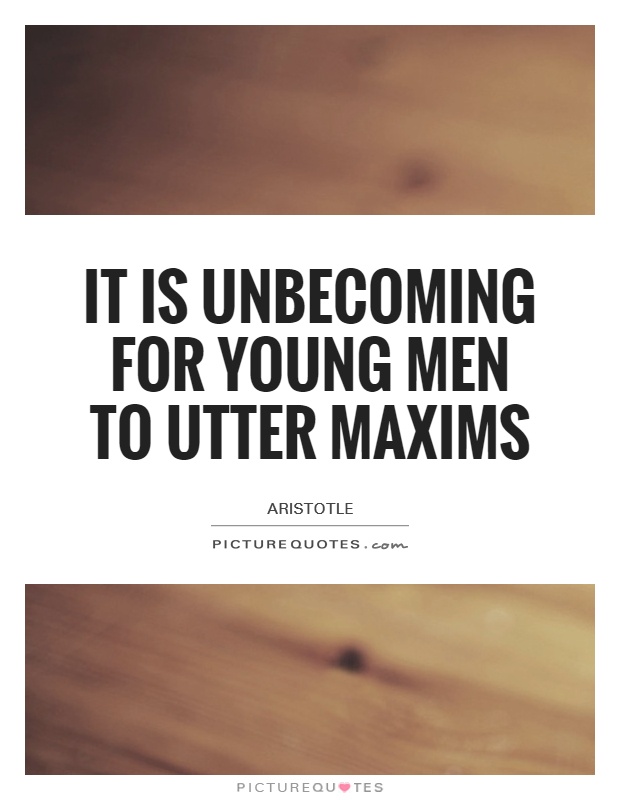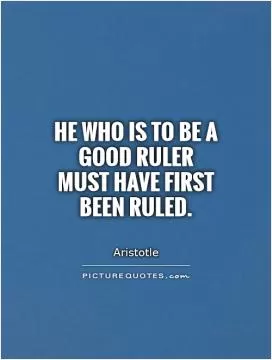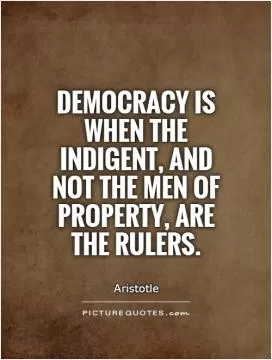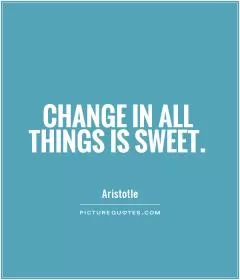It is unbecoming for young men to utter maxims

It is unbecoming for young men to utter maxims
In Aristotle's Nicomachean Ethics, he discusses the concept of virtue and the importance of developing good character. One of the key points he makes is that it is unbecoming for young men to utter maxims. This statement may seem puzzling at first, but upon closer examination, it becomes clear that Aristotle is emphasizing the importance of practical wisdom and experience in developing virtue.A maxim is a general principle or rule of conduct that is often stated as a proverb or aphorism. While maxims can be useful guidelines for behavior, Aristotle argues that they are not sufficient for developing virtue. Instead, he believes that virtue is a habit that is cultivated through practice and experience. Young men, in particular, are still in the process of developing their character and are not yet equipped with the wisdom and judgment necessary to apply maxims effectively.
Aristotle's emphasis on the importance of practical wisdom is rooted in his belief that virtue is a mean between extremes. In other words, virtue is not simply a matter of following rules or principles, but of making the right choices in specific situations. This requires a deep understanding of the particular circumstances and a willingness to adapt one's behavior accordingly.
By focusing on the development of practical wisdom, Aristotle is encouraging young men to engage in thoughtful reflection and self-examination. Rather than relying on maxims or external rules, he encourages them to cultivate their own moral judgment and to strive for excellence in all aspects of their lives.












 Friendship Quotes
Friendship Quotes Love Quotes
Love Quotes Life Quotes
Life Quotes Funny Quotes
Funny Quotes Motivational Quotes
Motivational Quotes Inspirational Quotes
Inspirational Quotes